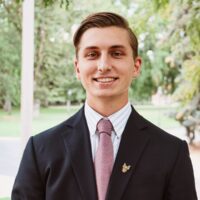Idaho’s four-year schools will no longer be able to require job applicants to sign written “diversity statements.”
After brief discussion, the State Board of Education unanimously passed a resolution Tuesday banning the statements “as a condition of hiring.”
The resolution goes into effect immediately, and covers Boise State University, the University of Idaho, Idaho State University and Lewis-Clark State College.
While the use of diversity statements has become a hot-button topic in national academic circles, it’s unclear whether the practice has been commonplace in Idaho.
“The board is not aware of any specific concerns by faculty in Idaho, nor the extent to which diversity statements have been used for hiring decisions at Idaho’s public postsecondary institutions,” board staff said in a memo to State Board members.
The resolution seeks to carve out two paths.
It calls on college and university administrators, faculty and staff to “continue to create and nurture a safe, welcoming and dynamic learning environment of belonging for all students.”
But the resolution also says, in part, “The use of written diversity statements to evaluate candidates for hire may result in employment decisions based on factors other than one’s own merit.”
Board members spent only a few minutes discussing the resolution.
Board President Kurt Liebich asked how the policy might apply to jobs that are specifically designed to address diversity, equity or campus inclusion — such as the University of Idaho’s director of engineering diversity, funded through a Micron Technology endowment.
The resolution addresses only written statements, not questions in a job interview, said TJ Bliss, the State Board’s chief academic officer.
The next step is for the State Board to amend its formal policy, to align with the resolution passed Tuesday. That action is expected to occur in August.
The board is meeting at the U of I this week; its meeting resumes Wednesday morning.
‘We are still in that mourning process’
A panel of U of I students reflected Tuesday on their campus experience — and the deaths of four of their classmates.

“We must mourn and try not to gloss over it,” said Tanner McClain of Middleton, president of the Associated Students of the U of I. “We are still in that mourning process.”
“I just feel like everybody’s healing at different times, in different ways,” said Natalie Suaste of Jerome, the ASUI’s director of diversity and inclusion. “There’s no going back to normal.”
Four U of I students — Ethan Chapin, 20, a freshman from Mount Vernon, Wash.; Kaylee Goncalves, 21, a senior from Rathdrum; Xana Kernodle, 20, a junior from Post Falls; and Madison Mogen, 21, a senior from Coeur d’Alene — were killed in an off-campus house on Nov. 13. The slayings thrust the U of I into an international spotlight, and an undetermined number of students left the campus early during the fall semester.
McClain praised U of I administrators for their response to the murders — increasing campus security, ramping up counseling services and organizing a campus vigil honoring the four slain students.

While some students fled the campus in the days after the slayings, U of I officials have said enrollment numbers rebounded for the spring. Less than two weeks before the start of spring semester, Washington State University graduate student Bryan Kohberger was arrested in Pennsylvania and charged with first-degree murder in connection with the deaths.
On Tuesday, Provost Torrey Lawrence said the U of I did not lose its fall enrollment increases, including a record number of first-year students. And he said that’s a reflection on the way the U of I responded to the homicides.
State Board President Kurt Liebich praised the student panelists for persevering through the tragedy — and the pandemic that forced the U of I to shift to remote learning three years ago.
“You’ll probably go down as the most resilient graduating class in U of I history.”
Education college enrollment still lags post-pandemic
On Tuesday, State Board members heard another set of sobering numbers on Idaho’s teacher shortage.
Enrollment in the University of Idaho’s college of education remains well below pre-pandemic levels — as are student teacher placements.
The problem is twofold, said Brooke Blevins, hired last summer as the new dean of the U of I’s College of Education, Health and Human Sciences. The pandemic was one factor, she said, but the “national assault” on the teaching profession is also to blame.
This spring, 321 students are attending the U of I’s education college — a slight increase from the previous spring, but down 13% from three years ago.
The college placed 62 student teachers this spring, a 23% drop from three years ago.
Blevins addressed the national teacher shortage in stark terms.
“This is a crisis,” she said Tuesday. “Teachers are at the heart of a workforce-ready population.”
Meanwhile, Blevins said the U of I’s college of education will emphasize two areas: preparing graduates for the unique challenges of teaching in rural schools, and “trauma-informed practices” that will help teachers better address students’ mental welfare.
Blevins said salaries contribute to the teacher shortage — especially in Idaho border communities, where teachers can collect a $10,000 to $15,000 raise by crossing the state line. But she does believe Gov. Brad Little and the Legislature are “reshaping” the dialogue by putting more state money into teacher pay.
“I wish more people would get on board with that view,” Blevins said.
Tuesday’s discussion is likely to continue on other campuses, at future board meetings. The State Board wants to hear presentations from other colleges of education across the state, executive director Matt Freeman said Tuesday.
